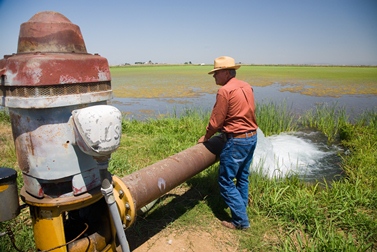Groundwater Agencies Formulating Plans for SGMA
Groundwater Sustainability Will Be Focus of New Rules
By Jessica Theisman, Associate Editor
Groundwater agencies up and down the state are formulating initial plans for growers in their areas to reduce overdraft pumping of groundwater as they prepare for the Sustainable Groundwater Management Act regulations that will kick in around 2040. Ron Samuelian is a civil engineer with Provost and Pritchard consulting group, with offices around the state. He spoke with California Ag Today about their role as an engineering firm regarding helping growers with SGMA.
At the moment, a lot of the work is related to a plan. Using hydrogeology, they are figuring out the water budget, its impact, the amount of overdraft occurred, and how to monitor this in the future.
“But maybe most importantly, how are we going to fix it and what are we going to do about it? I think that is where we really come in. We understand not only ag but, urban and all of the other uses,” Samuelian said.
The goal of SGMA is to be in balance in 2040.
“In terms of sustainability over time, we have seen a decline in our water table. At a given well, the water level might bounce up and down, but the general trend has been to decline a 1 to 5 feet a year, depending on location,” Samuelian explained.
In 2040, the trend is supposed to be flat.












